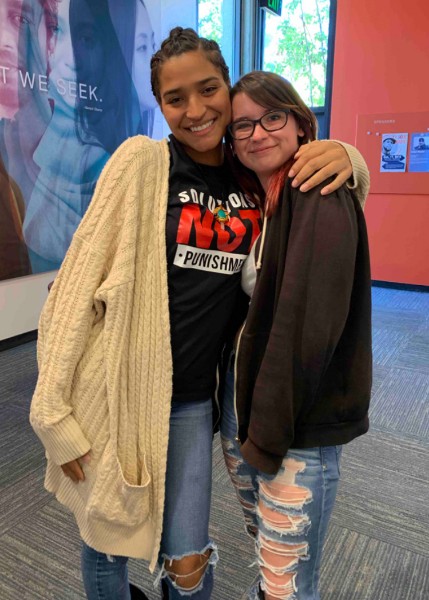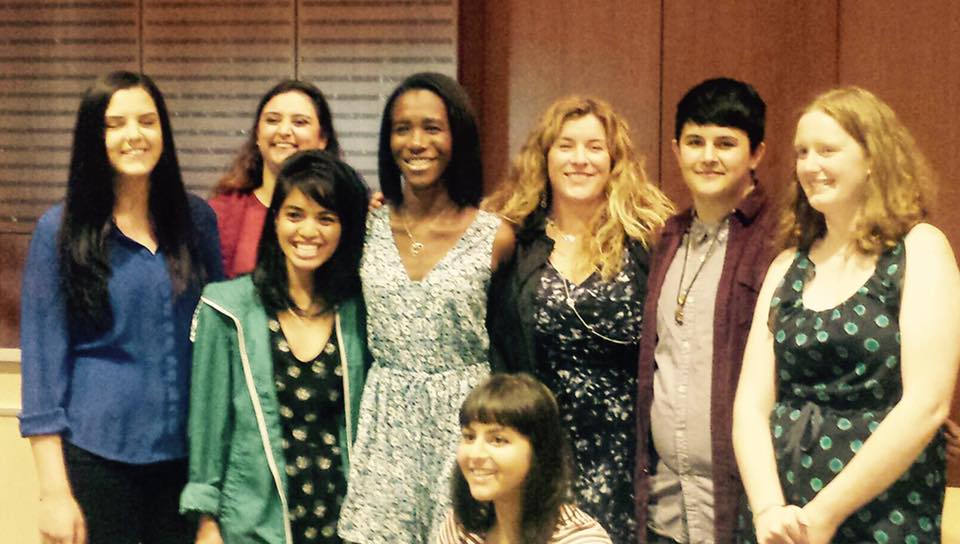
A Degree in Social Justice Studies
The Associate in Arts in Social Justice Studies for Transfer degree (AA-T) is a 60 unit program which provides students with a pathway for turning
their passion for change, human rights, and the ideals of justice into an inter disciplinary focus area of study for transfer. The program gives students choices in their coursework, so that each individual can focus on the issues or areas that most appeal to them within the framework of social justice coursework that includes themes of race ethnicity, socioeconomic class, sex identity, culture and diversity, gender, and sexuality. This interdisciplinary program will prepare students for a workplace and world where awareness of inequality, microaggressions as well as systemic marginalization and discrimination, and a capacity to understand and address social responsibility, have become globally interconnected. The Social Justice Studies for Transfer degree (AA-T) provides students the lower division coursework required for transfer to a CSU institution for the major in a variety of interdisciplinary or traditional disciplines, such as Ethnic Studies, Women and Gender Studies, Justice Studies, Sociology, or English. Students completing the Associate in Arts in Social Justice Studies for Transfer degree (AA-T) will be able to, from various disciplinary perspectives, recognize, analyze, research, promote awareness and write about:
- Intersecting systems of oppression; the dynamics of power and privilege; prejudice and discrimination;
- Theories and practices of social change; resistance and empowerment; movements and activism;
- Specific manifestations of oppression such as ableism, classism, ethnocentrism, heterosexism, racism, sexism; the systems, dynamics, and interpersonal as well as institutional power structures that keep these oppressions in place;
- Social, cultural, and historical contexts for movements such as civil, women’s, disability, and LGBTQ rights as well as movements for several specific marginalized communities and peoples of color;
- Theories and research on socialization and acculturation that inform identity and group affiliations, in various historical eras and global communities;
- Social justice strategies such as dialogue across differences, alliance building, collaboration, and/or advocacy.
Social Justice Studies emerged out of historical and ongoing social progress movements such as the Labor, Civil Rights, Disability Rights, LGBTQ, and Women’s Liberation movements. Students explore interconnected systems of discrimination and oppression, including institutional, relational, cultural, and socioeconomic racism, sexism, ableism, classism, heterosexism, and cisgenderism. Social Justice scholarship locates intersectional identities of race, class, sex, ability,
gender, sexuality, religion, culture, and nation, to explore inequities and identify systems of oppression and advantage that exist as a result of marginalization, cultural supremacy/insensitivity, and/or violence. The goal of the pr ogram is not to engender a singular approach to social justice issues but rather to present students with a dynamic academic framework for thinking creatively and pragmatically about contemporary social issues.
Areas of scholarship that inform social justice include education; anthropology; race and ethnic studies; cognitive developmental and social psychology; gay, lesbian bisexual, transgender and queer studies; history; literature; Queer Theory; Judaic and Middle Eastern studies; sociology, and women, gender, and sexuality studies.
The Social Justice Studies transfer degree offers students the opportunity to prepare for rewarding work, such as with government agencies, colleges and universities, consulting firms, research institutes, corporations, domestic and international non-governmental or community or environmental organizations, human rights organizations, the United Nations, and international development organizations, or in journalism, writing, or social work.




